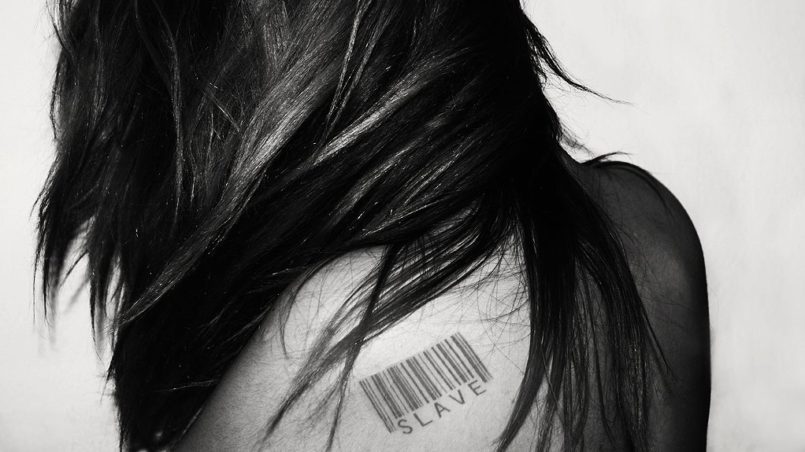Human Trafficking – or How a part of Modern Slavery Functions

Event data
- Datum
- 23. 5. 2017
- Host
- Diplomatische Akademie Wien
- Location
- Diplomatic Academy of Vienna, Musikzimmer, Favoritenstraße 15, 1040 Vienna
- Event-type
- Podiumsdiskussion
- Participants
- Heather Wokusch, Academic Council on the United Nations System – Vienna, Austria
- Nancy Rivard, President, Airline Ambassadors International, Virginia, USA
- Carlos Pérez, Coordinator of National Project against Trafficking in Persons and Migrant Smuggling, UNODC, Bogotá, Colombia
- Mary Shuttleworth, President, Youth for Human Rights International, California, USA
- Greg H.Bristol, President, The Human Trafficking Investigations & Training Institute, Virginia, USA
- Željka Momirović, Director of International Relations - Houston Airport System
- Gerald Tatzgern, Head, Central Services Combating Human Smuggling and Human Trafficking, Austrian Federal Ministry of the Interior
On Tuesday 23rd May, I attended an event held by the Diplomatic Academy in Vienna on the topic of “Modern Slavery”.
The speakers were Nancy Rivard, President of Airline Ambassadors International, an organisation which campaigns for training and better conditions in order to combat human trafficking in air traffic and to detect possible victims.
A further speaker was Greg H. Bristol, who previously worked for the FBI and who is now President of the Human Trafficking Investigations & Training Institute.
A reperesentative of the airport in Houston, USA , Željka Momirović, Director for International Affairs of the Houston Airport System, described the possibilities that airport personnel have to limit and prevent human trafficking.
The fourth and final speaker was Mary Shuttleworth, founder of the international organisation Jugend für Menschenrechte (Youth for Human Rights International), who drew a connection between the awareness of human rights and the existing human trafficking. A human rights organisation which, incidentally, is connected to Scientology, and, which has cautiously introduced some Scientology-related content to its materials in the past. Mary Shuttleworth is also a Scientologist; this influence was not evident in her talk but emerged upon further research.
Heather Wokusch moderated the event. She is an academic advisor at the United Nations.
She began with the statement that, according to the international labour organisation, 201 million people are affected by human trafficking. From these, approximately 68% are engaged in forced labour.
After these words, Nancy Rivard was introduced and she began her contribution on the subject. Her non-governmental organisation, Airline Ambassadors International (AAI), was founded in 1992; it is recognised by the US Congress as well as by the UN and is active in 62 nations.
They quickly identified victims of human trafficking in four further airlines with the help of twelve people. Another case was uncovered in Boston in which 86 children were involved. Already in 2000 a UN additional protocol was prepared on the subject of human trafficking and in the USA the number of campaigns on the subject increased. However, at this point there was no reaction or combatting measures on the part of the airline industry itself.
As the US government has not introduced any long-term effective measures, the AAI itself began to develop a training programme on the recognition and prevention of human trafficking in the airline industry. This took place on a voluntary basis.
In an ideal scenario the communication is thus: a flight attendant recognises a possible victim of human trafficking and informs the pilot, who radios the information to the destination airport. However, because no law for this exists and this only occurs voluntarily, the pilot often consider this information to be exaggerated and it is not passed on.
Currently in the USA, the AAI is therefore campaigning for the government to take more initiative. It is important to behave normally and to forward the information to the law enforcement agencies and not to intervene oneself.
There is a mobile app – “TIP Line” – which is available in both the Google Play store and in the App store. The app trains the recognition of victims and has an infrastructure at its disposal with which a message can be sent to local law enforcement agencies.
After these words, the next speaker was introduced: Željka Momirović. In the region of the city of Houston, she is responsible for diplomatic affairs and international protocols at two airports. Further, she is the coordinator between the two airports and the AAI and holds training sessions for future airport staff.
She gave a broad description of the organisation of an airport.
When Željka spoke to the management board about this fact, there was much reluctance. The argument was that it would put customers off if greater attention were to be paid to possible human trafficking. As a reaction to this defensive attitude, she, together with the AAI, initiated training on a voluntary basis and this was successful precisely due to its voluntary character.
After this brief excursus, the third guest appeared on the stage:
Greg H. Bristol was an FBI Special Agent responsible for investigations in cases of counterespionage, public corruption, stock fraud and civil rights’ violations from 1987 to 2010. The last included human trafficking. Subsequently he was active as a Special Agent for the Special Inspector General for Afghanistan Reconstruction (SIGAR) for 13 months. This is a supervisory institution in the USA which oversees the reconstruction of Afghanistan.
In 2012 he returned to the USA and founded the Human Trafficking Training Institute, which offers courses for law enforcement agencies in relation to human trafficking. He referred to the fact that, during his career, he did not receive any training at all on human trafficking.
He described how kidnappers and human traffickers proceed:
Home Land Security is responsible for law enforcement. If children are transported with United Airlines, it is even possible to hand them over to some individual without any problem. Offenders and victims often have a common tattoo. Girls are often tattooed directly on their tongues. It is the task of trained police to watch out for such conspicuous features.
Mr. Bristol believes that the weakest link is law enforcement as it does not concentrate on human trafficking. For 1,500 drug dealers who are arrested, there are only 300-400 human traffickers. He has also spoken with prostitutes in Washington D.C.: a majority of them were not voluntarily on the street.
A majority of police chiefs in the USA are not even aware of this. He stressed the importance of training which would last four hours for a normal police officer and three days for a chief of police.
At the end of his talk, the last speaker, Mary Shuttleworth spoke on the subject of human rights. However, she only mentioned the importance of human rights and presented a few projects in Australia and Africa, remaining in general rather vague.
Credits
| Image | Title | Author | License |
|---|---|---|---|
 |
NOT for sale: human trafficking | Ira Gelb | CC BY-ND 2.0 |
